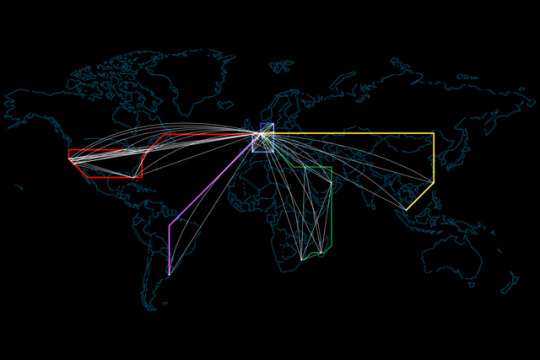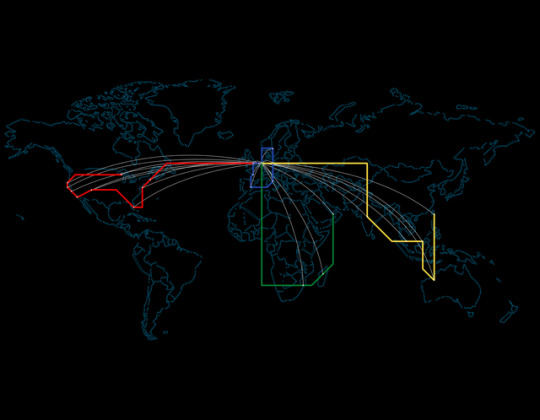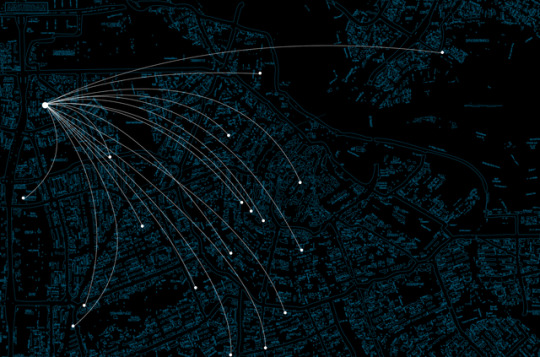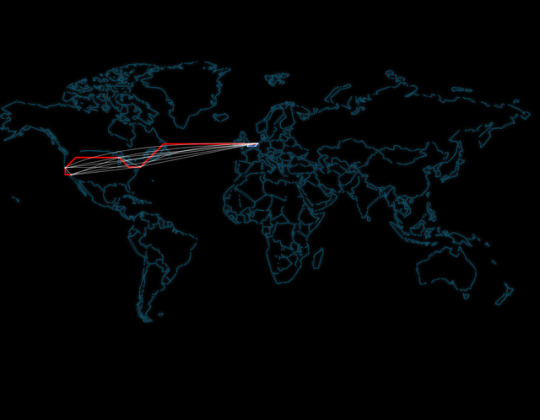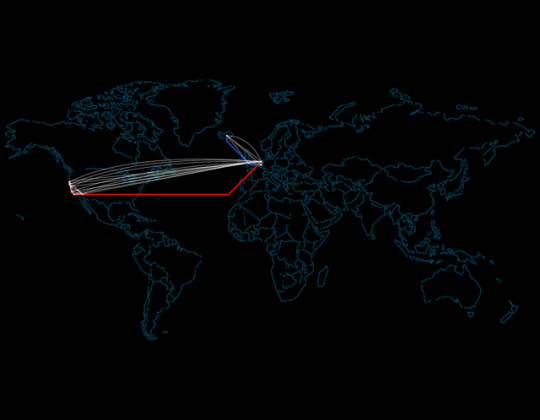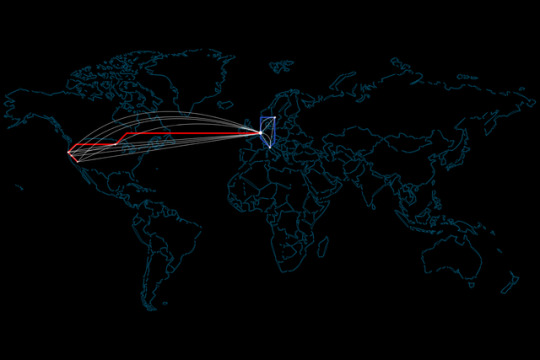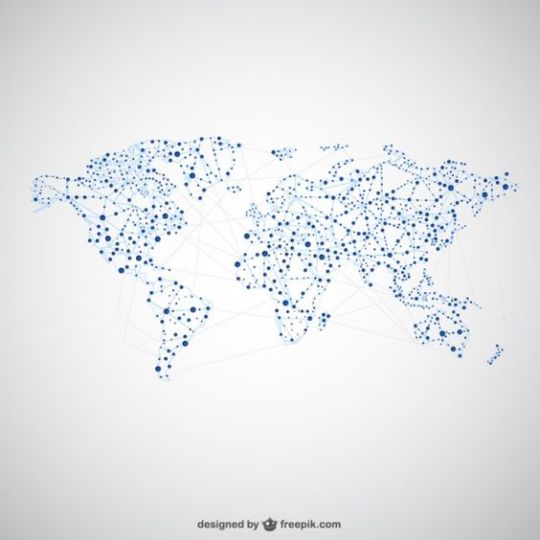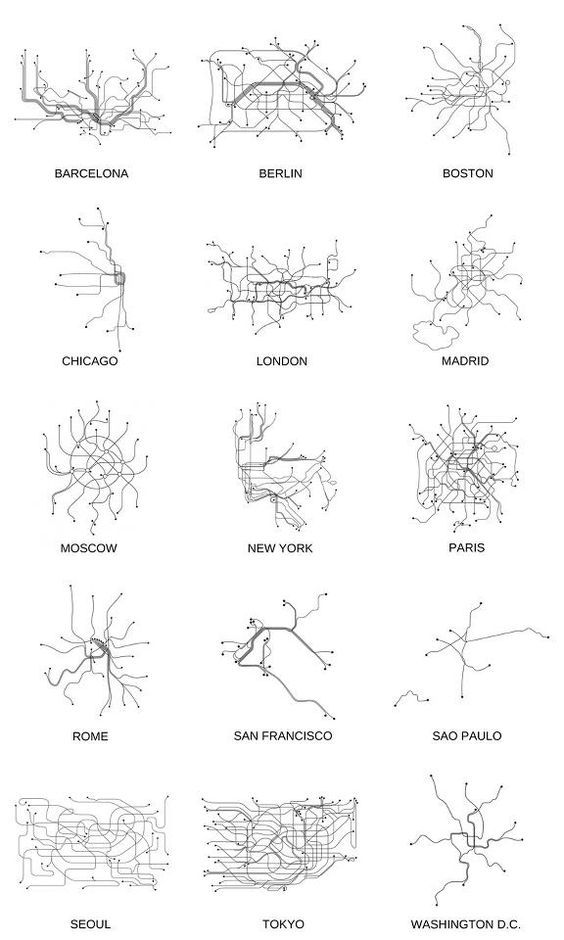Don't wanna be here? Send us removal request.
Text
How Facebook Uses Your Real World Shopping to Target Ads
Of course, you probably knew about a lot of that already. Using information in Facebook profile to target ads is old news, but with a few recent partnerships, Facebook is also going to use what you buy in real life stores to influence and track the ads you see. It sounds spooky, but it's also older than you may realize.
To do this, Facebook is combining the information they have with information from data collection companies like Datalogix, Acxiom, Epsilon, and BlueKai. These companies already collect information about you through things like store loyalty cards, mailing lists, public records information (including home or car ownership), browser cookies, and more. For example, if you buy a bunch of detergent at Safeway, and use your Safeway card to get a discount, that information is cataloged and saved by a company like Datalogix.
How much do these data collecting companies know? According to The New York Times: way more than you'd think, including race, gender, economic status, buying habits, and more. Typically, they then sell this data to advertisers or corporations, but when it's combined with your information from Facebook, they get an even better idea of what you like, where you shop, and what you buy. As Diana describes it, Facebook is "trying to give advertisers a chance to reach people both on and off Facebook," and make advertisements more relevant to you. Photo by Joe Loong.
How Real-Life Ad Targetting Works
The most shocking thing you're going to find on Facebook is when something you do in the real world—say, buy a car, go shopping with a loyalty card at a grocery store, or sign up for an email list—actually impacts the ads you see. This is no different than any other direct marketing campaign like junk mail, but seeing it on Facebook might be a little unsettling at first. There are a couple reasons this might happen: custom audiences, and the recent partnerships with data collection companies we talked about earlier.
Custom audiences are very simple and it basically allows an advertiser to upload an email list and compare that data (privately) with who's on Facebook. Diana offered the simple example of buying a car. Let's say you purchase a car from a dealership, and when you do so, you give them your email address. That dealership wants to advertise on Facebook, so they upload a list of all the email addresses they have. That data is then made private, and Facebook pairs the email address with the one you registered on Facebook. If they match, you might see an ad from that dealership on Facebook for a discounted tune-up or something similar. Additionally, Lookalike audiences might be used to advertise to people similar to you because you purchased a car there. That might mean your friends (assuming you're all similar) will see the same ad from the dealership.
The custom audiences can be used by any company advertising on Facebook. So, if you're on your dentist's email list, or that small bakery around the corner snagged your email for a free slice of pie, they can potentially reach you through this system.
The partnership with other data collection agencies like Acxiom and Datalogix is going to look a little different. This means that when you use something like a customer loyalty card at a grocery store, you might see a targeted ad that reflects that. The New York Times offers this example:
At the very least, said Ms. Williamson, an analyst with the research firm eMarketer, consumers will be "forced to become more aware of the data trail they leave behind them and how companies are putting all that data together in new ways to reach them." She knows, for instance, that if she uses her supermarket loyalty card to buy cornflakes, she can expect to see a cornflakes advertisement when she logs in to Facebook.
A new targeting feature, Partner categories, takes the data collected by these third-party data brokers and puts you into a group. So, if you're in a group of people who buys a lot of frozen pizza at Safeway, you'll see ads for frozen pizza, and maybe other frozen foods.
It sounds a little weird at a glance, but it's important to remember that this is all information that you're already providing. Facebook is using data collected by outside companies to create a more accurate portrayal of you so marketers can advertise to you directly.
How Your Data Is Kept Private
All of this information being exchanged should make the hairs on the back of your neck stand up a little. If anything goes wrong, it could leak a bunch of your private information all over the place. Or, at the very least, marketers would get a lot more information about you then you want like your username, email, and location data. To keep your information private, Facebook uses a system called hashing.
First, your personal information like email and name is encrypted. So, your name, login info, and anything else that would identify you as a person goes away. Then, Facebook turns the rest of the information into a series of numbers and letters using hashing. For example, Age: 31, Likes: Lifehacker, Swimming, BMW's, Location: New York, turns into something like, "342asafk43255adjk." Finally, this information is combined with what the data collection companies have on you to create a better picture of your shopping habits so they can target ads. Slate describes the system like so:
What they came up with was a Rube Goldbergian system that strips out personally identifiable information from the databases at Facebook, Datalogix, and the major retailers while still matching people and their purchases. The system works by creating three separate data sets. First, Datalogix "hashes" its database—that is, it turns the names, addresses and other personally identifiable data for each person in its logs into long strings of numbers. Facebook and retailers do the same thing to their data. Then, Datalogix compares its hashed data with Facebook's to find matches. Each match indicates a potential test subject-someone on Facebook who is also part of Datalogix's database. Datalogix runs a similar process with retailers' transaction data. At the end of it all, Datalogix can compare the Facebook data and the retail data, but, importantly, none of the databases will include any personally identifiable data—so Facebook will never find out whether and when you, personally, purchased Tide, and Procter & Gamble and Kroger will never find out your Facebook profile.
From the actual advertisers point of view, the flow of information doesn't reveal personal details. It just tells them how many potential customers might see an ad. "An advertiser would learn something like, 'about 50% of your customers are on Facebook,'" says Diana, "But they don't know who you are."
How to Opt Out of Offline Targetting
Unlike the internal advertising system that uses the information you already provide to Facebook to give you ads, these new partnerships with real world data collection agencies go way beyond that. Now, they're able to see what you're buying at stores offline, and that's disconcerting for a lot of people. The goal, of course, is more relevant ads, but that comes at the price of privacy and security. With all this data out there, it would be easy to get a very clear image of who you are, where you live, what you like, and even if you're pregnant. Thankfully, opting out of the data collection companies also gets you out of the integration with Facebook (and everywhere else).
This process is a lot more complicated than it should be, but the Electronic Frontier Foundation has a step-by-step guide for each of the data brokers. Basically, you'll need to opt out in three different places: Acxiom, Datalogix, andEpsilon in order to ensure your shopping data in the real world isn't used on Facebook (and beyond). BlueKai, unfortunately, has no direct way to opt out so you'll need to use the browser extensions listed in the first section.
If you really want to keep those loyalty cards from tracking you, just use Jenny's number (867-5309) at the checkout lane instead of setting up an account.
Those are the basics of how Facebook's various targeted advertising systems work. Of course, a lot of complex math and algorithms are in place to actually generate this data, but it really boils down to how much information you're making public—whether you're aware of it or not—that makes the system tick. If you like the targeted ads, they should improve even more as the years go on. If you don't, opting out is always an option.
0 notes
Text
How Facebook Uses Your Data to Target Ads, Even Offline
If you feel like Facebook has more ads than usual, you aren't imagining it: Facebook's been inundating us with more and more ads lately, and using your information—both online and offline—to do it. Here's how it works, and how you can opt out.
For most people, Facebook's advertising system is insider-baseball that doesn't really affect how we use the service. But as the targeted ads—the advertisements that take the data you provide to offer ads specific to you—get more accurate and start pulling in information from other sources (including the stuff you do offline), it's more important than ever to understand their system. To figure out how this all works, I spoke with Elisabeth Diana, manager of corporate communication at Facebook. Let's kick it off with the basics of how the targeted ads work online before moving on to some of the changes we'll see with the recent inclusion of offline shopping data.
How Facebook Uses Your Profile to Target Ads
The most obvious example of a targeted ad uses something you like—say Target—and then shows an ad on the right side or in the newsfeed that simply says, "[Name] likes Target." What you and your friends like helps determine what everyone on your friends list sees for ads. Any ad you click on then increases the likelihood of another similar ad.
It's not just what you and your friends are doing that generates ads though; it's also basic demographic information. Diana notes that this also includes "major life events like getting engaged or married." So, if you're recently engaged and note that on Facebook, you'll see ads about things like wedding planning.
When an advertiser creates an ad on Facebook, they can select all sorts of parameters so they reach the right people. A simple example of a parameter would be: "Someone engaged to be married, who lives in New York, between the ages of 20-30." That's simple, but advertisers can actually narrow that down to insane specifics, like "Someone engaged to be married, who lives in New York, between the ages of 20-30, who likes swimming, and who drives a BMW." If your profile fits those parameters, you'll likely see the ad. If you want to see how it works, you can even try your hand at creating an ad.
It boils down to this: the more information you put about yourself on Facebook—where you live, your age, where (and if) you graduated college, the companies, brands, and activities you like, and even where you work—determines what kind of ads you'll see. In theory, it makes it so targeted ads are more relevant to you.
What Happens When You Don't Like or Share Anything
The way Facebook targets ads is based a lot around the information you provide. Using your likes, location, or age, Facebook puts you in a demographic and advertises to you. But what happens when you don't include any of that information on your profile? It turns out that your friends are used to fill in the gaps.
Chances are, even a barebones profile has a few bits of information about you. You probably at least have where you live and your age. That combined with the information your friends provide creates a reasonable demographic that advertisers can still reach you at. The ads won't be as spookily accurate to you as if you provide a lot of data, but they'll at least be about as accurate as a television ad on your favorite show.
How to Keep Facebook from Targeting Ads Online
We know Facebook has an idea of what you're doing online. That can be unsettling if you're concerned about your privacy and you don't want your online habits contributing to advertisements, or if you don't like the idea of Facebook collecting data about you that you're not willfully providing. You'll "miss out" on targeted ads, but here here are a few tools to keep that from happening online:
Facebook Disconnect for Chrome and Firefox: Facebook gets notified when you visit a page that uses Facebook Connect (the little "Like" button you find on most web sites, including ours), and that data can be used to target ads. Facebook Disconnect stops that flow of data.
Facebook Privacy List for Adblock Plus: This subscription for Adblock Plusblocks Facebook plugins and scripts from running all over the web so your browsing data doesn't get tied to your Facebook account.
DoNotTrackMe: DoNotTrackMe is another extension that blocks trackers and anyone who wants to collect your browsing data to create targeted ads.
Finally, you want to opt out of the Facebook Ads that use your actions (liking a page, sharing pages, etc) to promote ads to your friends:
Click the lock icon when you're logged into Facebook and select "see more settings".
Click the "Ads" tab on the sidebar.
Click "Edit" under "Third Party Sites" and change the setting to "No one."
Click "Edit" under "Ads & Friends" and select "No One." This disablesSocial Ads.
So, that takes care of the online advertising. Be sure to check out our guide to Facebook privacy for more information about all that. You can also hide your likes from your profile so they're not as prominant. If you don't actually mind the advertising, but want to improve the ads shown to you, you can always click the "X" next to any ad to get rid of it.
0 notes
Text
The truth about Facebook | Scared yet?
It has been an ongoing debate now for over 3 years. What exactly is Facebook and what are they doing behind the scenes that we don’t know about? How are they using the information we so willingly put up on their server without any kind of ownership after we’ve saved our changes and additions? Are they using us for businesses we don’t even know exist or what is the deal?
It is quite clear when reading the EULA that something isn’t right. Why do we need to accept the conditions to give up the rights of our images that we upload? It can’t be to be able to show them on our personal profile pages as that would have been an entirely different clause to begin with. It is easy to understand that a lot of people, when they eventually found out that they gave up the rights for their stuff, started freaking out. But is there a reason to freak out about the EULA of Facebook or is it just an exaggeration brought upon us by the media?
Well, it so much depends on from what angle you look at it. There are so many things that we don’t know is going on behind the scenes of all of the major and leading social media services. Twitter, Myspace and Facebook collectively have the most complete database of statistics making even the government look like a beginner in comparison. We can be sure that these social media services make good money trading this information and I guess we can be sure the government is tapping in to it from time to time as well.
So, should we be scared yet? Well, watch this clip from 2007 and decide for yourself. Are you closing down your Facebook page yet? Oh, if you didn’t know already, you can’t. Facebook never lets you delete your stuff if you have once uploaded something. They just close it publicly and whenever you feel like you want to open it up again you just have to log in. It’s that weird. So, are you scared yet?
0 notes
Text
Facebook advertisers
The advertisers do not get a list of people, it would not be in Facebook's own interest to just hand over your details. The advertiser tells Facebook what types of people they want to target (by gender, age, sexuality, interests, etc.) and Facebook decides who meets the requirements. This way, the advertisers can't go direct - they must continue to pay Facebook for access to you because they don't know who you are (unless you click the advert and give them information). Facebook is deciding which adverts to show you. They keep a whole load of information about you. Not just your public profile, but everything you do (all clicks, Likes, comments, page views, etc.). Every private message or chat you send is also analyzed for information on your current activities or interests and your longer term interests. Facebook also knows what websites you visit, thanks to their widgets and "partnerships" all over the internet. They also notice who your friends are, their information and interests, and may target you with adverts assuming that you like what your friends do. You may find this creepy, but that's how Facebook makes money. They know more about you than anyone, they know the stuff you wouldn't tell your own mother. Never mind going to confession, Facebook could automatically send a complete list of your sins for you. There are ways to limit what Facebook can track, but that is a whole separate subject. You do have some control over what Facebook has decided you are interested in. You may even be surprised by their list - I was listed as being interested in places I have never even heard of. You may also find that some advertisers have your details. This is because your email address was in a list they uploaded, so they may be someone you have had business with or a spammer who had you on their spam list.
0 notes
Text
Advertisers with my contact info (262)
Prince of Wales Boat Quay
ASOS
GetUp!
Dropbox
The Big Bang Theory
Sushi Tei
NCIS
CBS
Survivor
TV Guide
NCIS: Los Angeles
Xin Wang Hong Kong Café
The Good Wife
Jack’s Place
Subbacultcha
Susan G. Komen Italia
Cedele
Toko Nina
Emirates Golf Club
Fish & Co. Singapore
Spotify
KPN
Andy Grammer
Airbnb
Sissy à la Mode
Gilt Man
Muddy Murphy’s
PayPal
Meat Smith at Cocotte
Die Kurve
Migos
Chalco’s Mexican Grill
Bilbao Berria
CheapTickets.nl
ASOS
Anne&Max Haarlem
Sirtaki
Spotify
Airbnb
KRIS KROS
Artfinder
PS.Cafe at Ann Siang Hill Park
Bij Albrecht
Little Mix
XO Haarlem
12inchCity
The Penny Black
Cupid
Anne&Max Leiden
LITE/DARK
Häagen-Dazs
Airbnb
Janaki Indian Cuisine
Buddhas
Julia Landauer
The Fat Pug Neighbourhood Pub & Kitchen
Elementary
Deliveroo
Bio snackbar Natuurlijk Smullen
Restaurant Hoshigaoka
Airbnb
Stellar
Telfort
Prince of Wales Little India
Loulou Friendly Diner
Huy Traiteur
Pastelería Formentor
PS.Cafe
Pockets
wagamama.nl
Thomas Lee Software
ASOS
adidas
Mio
Su Nuraghe Due Düsseldorf
MAUR
Chatterbox
The O.C.
EATaliano Haarlem
So'Chick
Il Tartufo - Delicatessen Traiteur Catering
LISTO
Cereal Lovers
Chingon Bcn
Woesteburgers
TigellaBella Terrasse du Port
Warwick Dubai
Tortillas Breda
Diner Red Rooster
Spotify
Airbnb
Airbnb
Walkin'Thaï
La Cure Gourmande UAE
Baker&Moore
Chiak
Tortillas Eindhoven
Keik Barcelona
Cambridge Rag
Spotify
Candy Crush Saga
ING Nederland
Yoghurt Barn
Chopsuey Cafe
Ms. Crumbs
Le Bon Burger
Airbnb
Canopy Garden Dining
Future
Airbnb
Be Andilana
Durban Vintage
Deliveroo
De Helling
PS.Cafe at Martin 38
Sam'Régal
Milkywaysblueyes
De Eetalage
Rhodos
La SanduCherie
LoveAgain.com
Nace / Global Talent Network
Ransom
Poké Delicious & More
Tonton et Lulu
ASOS
Jetties
ASOS
Spotify
ASOS
Tribeca Burger
Pret To Go
Bonetti
LaMburguesa
Spotify
MatureDating
Restaurante Samarkanda
Sugo
Deliveroo
Holy Moly Gourmet Burger Rouen
Klein Parijs in Haarlem
ZEN Restaurant
Chawlas2UAE
King
Schiller Burger
ThaiExpress Singapore
Airbnb
Yumi Sushi
Freddy Schilling
Het Houtskooltje
De Soepkantine
Angela May Food Chapters
PappaRich Singapore
Space Burger
Las Mañas
STAY Antwerp
Spotify
Mama Campo
Le B
Ginger
Airbnb
NamNam Noodle Bar
Dimitri Petit
Spotify
Willy Nacho
Peel Juice Bar
ASOS
Airbnb
Airbnb
ASOS
Pizza Tradition
Canard Street
Black Rhino - Food Truck
The Good Fight
Park Bench Deli
Guzman y Gomez Singapore
Miska
The Keg & Grill
Sugar and Spice Bites
Mezze take-away & delivery
HAKA
The Sushi Room
Restaurant La Voisine
Bon
Ansel Elgort
Airbnb
Candy Crush Connect Saga
Greg and Jerry’s
Vet Gezond
Eat&love Madrid
Sagasta 28 Bistró&Gourmet
Pure Juice
Candy Crush Soda Saga
KPN Presenteert
Non Peut-être
Pittz
Deliveroo
BurgerArt
Square Delicatessen
Deliveroo
Vinoneo
Deliveroo
AYAN - Filipino Streetfood
Deliveroo
Chopsuey Cafe at Martin 38
Poco Broadway Market
Deliveroo
Boca’s Rotterdam
Deliveroo
Nancylicious
Doubt
Urban Seafood
Training Day on CBS
The Good Whale
Pita Queen
BAVET
Star Trek: Discovery
Deliveroo
Bubble Witch 3 Saga
Brazilian Roast cafe
Feuersteins Premium Burgers Düsseldorf
Bazxar
Alter Ego
Proud To Be a Chef
Corner Bistro
John Viande
Madam Secretary
Airbnb
Zoete Zin
The Uptown Meat Club
The Royal Pug
Enjoy Zaragoza
Deliveroo
Zucca Leiden
De Bakkerswinkel Amsterdam, Centrum
Airbnb
Senara DXB
Bojo Restaurant
Skyline diner
Smood Juicebar
Jugo Juice Middle East
Valentina & Co.
Farina Trattoria
foodora
Superior Donuts
Mr.Morris
Mad Snacks Street Food
DC Comics Super Heroes Cafe - Official
Puff Baker Cafe
Braai
Deliveroo
Slots Era
Cups and Leafs
Hunted on CBS
PizzaExpress, Singapore
A Poke Theory
Thai Delft 2 Go
360 Gegrillt & Gechillt, Düsseldorf
Ritos
Mr. Elshot
Welcome to Italy - Pizza & Pasta
Stamppotje
0 notes



